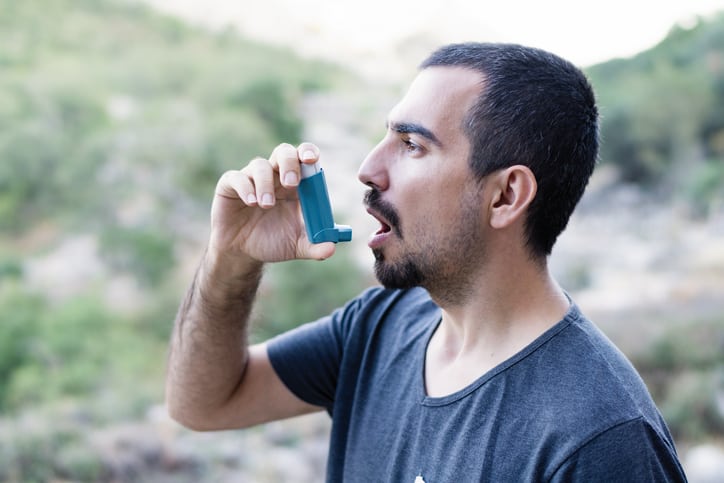To mark World Asthma Day May 4, Hartford Hospital doctors in a roundtable discussion with state and local officials addressed the impact on environmental pollutants on people who suffer from respiratory illnesses.
The group focused on the disproportionate impact of air pollution on underserved, urban communities and what’s being done to address and improve the issue.
Dr. Sam Pope, a pulmonologist with Hartford Hospital, noted the vulnerability of adults and children who live in Hartford and suffer from asthma. That susceptibility to illness was put into sharper focus during the COVID pandemic.
“Our second COVID patient into Hartford Hospital was a severe asthma sufferer from Hartford, who fortunately made it through after being put on a ventilator,” he recalled. “COVID is a true concern for people with chronic pulmonary problems.”
Representatives from the Connecticut State Department of Energy and Environmental Protection (DEEP), the Department of Transportation (DOT) and the Department of Public Health (DPH) spoke out in support of legislation before the Connecticut General Assembly that would authorize implementation of the Transportation and Climate Initiative Program.
DEEP Commissioner Katie Dykes explained how the initiative would work:
“Companies that are selling petroleum fuels, gasoline and diesel fuels at wholesale would be required to purchase allowances, basically paying for greenhouse gas emissions that are associated with the sale of their fuels in Connecticut. . . . Through this program we can reduce greenhouse gas emissions by 26 percent and then reinvest the money in clean transportation solutions. Those fuels are making our communities sick.”
The conversation also touched upon the necessity to create more environmentally clean public transportation and improve air quality in communities that are in close proximity to highways. Doing so would relieve some chronic respiratory illnesses that affect adults and children in urban communities.
“If we make some investment in reducing pollution, we will see immediate positive health improvements which can reduce the disparities,” said Dr. Mark Mitchell, a member of the Hartford Advisory Committee on the Environment. “As an adult asthma sufferer and who is allergic to air pollution, I think it’s important to make an investment to reduce air pollution in areas that are often overlooked.”
COVID shed a light on health inequities nationwide, and Dr. Adam Steinberg, Vice President of Medical Affairs for Hartford Hospital was encouraged about the future, saying, “COVID has brought to the forefront the disparities within COVID and healthcare in general. One positive is that we come out of it really focused on the disparities, not limited to COVID.”
Dr. Pope reinforced the correlation between air pollution, climate and people in underserved communities. “Ground level ozone is higher when it’s hot, and more people show up in the Emergency Department in those days when there are more particulates in the air. This is a problem that needs to be addressed.”

